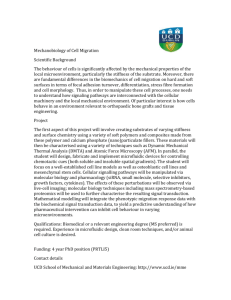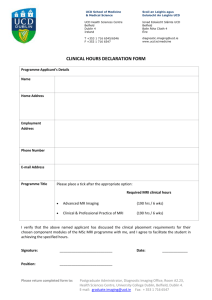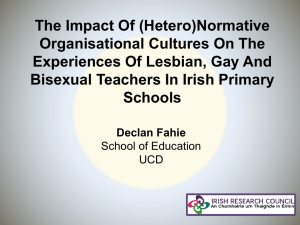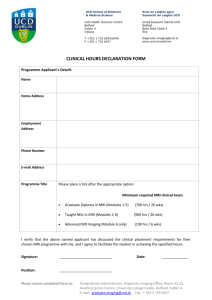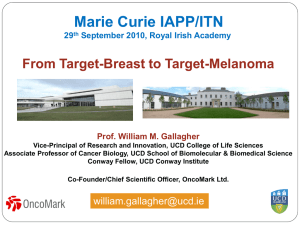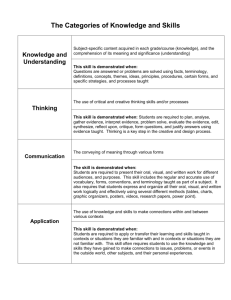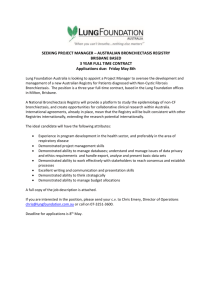leveld_g
advertisement
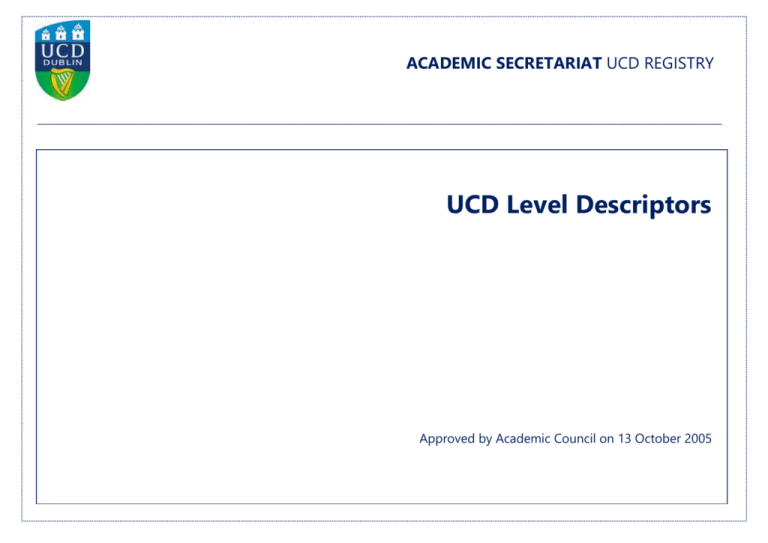
Page 1 of 3 ACADEMIC SECRETARIAT UCD REGISTRY ______________________________________________________________________________________________________________________________________________ ACADEMIC SECRETARIAT UCD REGISTRY _________________________________________________________________________________________________________________________________________ UCD Level Descriptors Approved by Academic Council on 13 October 2005 ______________________________________________________________________________________________________________________________________________ www.ucd.ie/registry/academicsecretariat ACADEMIC SECRETARIAT UCD REGISTRY Page 2 of 3 ______________________________________________________________________________________________________________________________________________ UCD LEVEL DESCRIPTORS Bologna cycle NFQ level UCD level knowledge and understanding First cycle (Bachelors) 6 0 7 1 8 2 8 3 have demonstrated basic knowledge and understanding, underpinned by the basic theories, concepts or methods of the field of study, at a level appropriate to at the transition from secondary to tertiary education and which is typically at a level supported by introductory thirdlevel textbooks have demonstrated basic knowledge and understanding, underpinned by the basic theories, concepts or methods of the field of study, that builds upon secondary education and which is typically at a level supported by introductory third-level textbooks have demonstrated specialized knowledge and understanding, underpinned by the more advanced theories, concepts or methods of the field of study, have begun to show some awareness of the limitations of current knowledge and the sources of new knowledge, and which is typically supported by intermediate and advanced textbooks have demonstrated specialized, detailed or advanced knowledge and understanding, underpinned by advanced theories, concepts or methods, which includes a clear awareness of the limitations of current knowledge and the sources of new knowledge, which is supported by advanced textbooks, but includes some aspects that will be informed by knowledge at the forefront of the field of study applying knowledge and understanding can apply knowledge and understanding in a variety of educational, occupational and social contexts can apply their knowledge and understanding in specific educational and occupational contexts related to the field of study as well as general educational, occupational and social contexts begins to apply their knowledge and understanding to devise, develop and sustain arguments within the field of study can apply their knowledge and understanding in a manner that indicates a professional approach to their work or vocation, can devise and sustain arguments and solve problems within their field of study, whether by analysis and argument or the development and testing of hypotheses. making judgements have begun to develop the ability to use data to formulate responses to well-defined concrete and abstract problems within the field of study have the ability to identify and use data to formulate responses to welldefined concrete and abstract problems within the field of study and to judge the validity of conclusions against their knowledge, understanding, and the available data. have the ability to identify and use data to formulate responses to welldefined concrete and abstract problems within the field of study, and have begun to develop the ability to identify gaps or discrepancies in the data and strategies to eliminate or compensate for these have the ability to gather and interpret the relevant data from a variety of sources to inform judgments on problems within or related to the field of study, that include reflection on relevant disciplinary, scientific, professional, social, or ethical issues. communications and working skills can communicate about their understanding, skills and activities with peers can communicate about their understanding, skills and activities, with peers and supervisors can communicate about their understanding, skills and activities, with peers, supervisors and clients can communicate information, ideas, problems and solutions to both specialist and non-specialist audiences learning skills have the learning skills to undertake studies at third level have the learning skills to undertake further studies with some autonomy. have the learning skills to undertake further studies with some autonomy. have developed those learning skills that are necessary for them to continue to undertake further study with a high degree of autonomy ______________________________________________________________________________________________________________________________________________ www.ucd.ie/registry/academicsecretariat ACADEMIC SECRETARIAT UCD REGISTRY Page 3 of 3 ______________________________________________________________________________________________________________________________________________ Bologna cycle NFQ level UCD level knowledge and understanding Second cycle (Masters) 9 4 Third cycle (Doctorate) 10 5 First cycle (Professional Bachelors) 8 3 Second Cycle (Professional Masters) 9 4 have demonstrated specialized, detailed or advanced theoretical and conceptual knowledge and understanding, which is based consideration of current debate and controversy at the forefront of the field and that provides a basis or opportunity for originality in developing and/or applying ideas, often within a research context have demonstrated knowledge and understanding in an advanced theoretical or conceptual framework, a systematic understanding of the problems at the forefront of knowledge and potential approaches and solutions, and mastery of skills and methods of research associated with the field of study. have demonstrated specialized, detailed or advanced knowledge and understanding in a professional field, underpinned by advanced theories, concepts or methods, which includes a clear awareness of the limitations of current knowledge and the sources of new knowledge, which is supported by advanced textbooks have demonstrated specialized, detailed or advanced theoretical and conceptual knowledge and understanding in a professional field, which is based consideration of current debate and controversy at the forefront of the field and which provides a basis or opportunity for originality in developing and/or applying ideas, often within a research context applying knowledge and understanding can apply their knowledge, understanding, and problem-solving abilities in new or unfamiliar environments, within broader (or multidisciplinary) contexts, or to generate new knowledge through research have demonstrated the ability to conceive, design, implement and adapt a substantial process of research with scholarly integrity and have made a contribution through original research that extends the frontier of knowledge by developing a substantial body of work, some of which merits national or international refereed publication can apply their knowledge and understanding in a manner that indicates a professional approach to their work or vocation, can devise and sustain arguments and solve problems within profession. can apply their knowledge, understanding, and problem-solving abilities in new or unfamiliar environments, within broader (or multidisciplinary) contexts, or to generate new knowledge through research making judgments have the ability to integrate knowledge and handle complexity, and formulate judgments with incomplete or limited information, and to reflect on wider disciplinary, scientific, professional issues and social and ethical responsibilities linked to the application of their knowledge and judgments are capable of critical analysis, evaluation and synthesis of new and complex ideas have the ability to gather and interpret the relevant data from a variety of sources to inform judgments on problems within or related to the profession, that include reflection on relevant professional, social, or ethical issues. have the ability to integrate knowledge and handle complexity, and formulate judgments with incomplete or limited information, and to reflect on wider professional issues and social and ethical responsibilities linked to the application of their knowledge and judgments communications and working skills can communicate their conclusions, and the knowledge and rationale underpinning these, to specialist and non-specialist audiences clearly and unambiguously can communicate with their peers, the larger scholarly community and with society in general about their areas of expertise can communicate information, ideas, problems and solutions to both specialist and non-specialist audiences can communicate their conclusions, and the knowledge and rationale underpinning these, to specialist and non-specialist audiences clearly and unambiguously learning skills have the learning skills to allow them to continue to study in a manner that may be largely self- directed or autonomous. can be expected to continue their own learning at the frontiers of knowledge and be able to promote, within academic and professional contexts, technological, social or cultural advancement in a knowledge based society. have developed those learning skills that are necessary for them to continue to undertake further study or professional development with a high degree of autonomy have the learning skills to allow them to continue to study or develop professionally in a manner that is largely self-directed or autonomous. ______________________________________________________________________________________________________________________________________________ www.ucd.ie/registry/academicsecretariat


